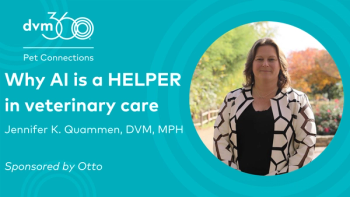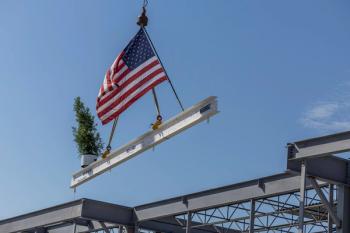
The irrefutable value of the word 'no'
No is the abbreviation for Norway and the element Nobelium.
No is the abbreviation for Norway and the element Nobelium.
It is also much easier to say than disambiguation, a most powerful management tool that is far too seldom used.
The word "no" is the most common English word indicating disagreement and the same is true in most other cultures, whether they say Nao, Nein, Nay, Nix, Nicht, Nyet or whatever.
My professional use of the word "no" has saved veterinarians some hundreds of millions of dollars in lost revenue over my career.
We are brought up in a world where "no" is looked upon as antisocial, but that ruins too many financial lives.
My most frequent use of "no" these days occurs with feasibility reports, when an anxious, glowing young veterinarian finds the ideal location. He or she was brought up only 20 minutes away and know so many people (potential clients) that they should top $1 million a year in the first week.
"Facts" are getting in the way of the glowing report I am preparing for their business plan as they seek bank financing.
The five-year growth projection at this particular time is minus 3.1 percent, meaning that more people are leaving this practice radius (five miles) than are coming in.
The population per veterinarian is 7 percent less than the American Veterinary Medical Association (AVMA) standard per veterinarian, and the average family income is only 87 percent of what is needed for success by AVMA standards.
The area will support only 11 veterinarians and 13 are already in residence. It helps that five are women, who tend to work less than 5.5 days a week unless they are practice owners.
Now I am asked to provide positive, factual evidence that another new practice swirled into this mélange will be a success. It cannot be done.
I have many dozens of letters from young professionals, male and female, who are overextended in their businesses, asking me to find them another location — not too, too far away — where they can be more financially successful.
This veterinarian has spent five heartbreaking years working uphill in an area that was never meant for him or her.
I can and will find them a better location, but the financial losses created during that initial practice venture can seldom be recovered.
The advice I have for young professionals is to seek professional, demographically guided location services before they spend the first dime for rent. It is an ever tougher world out there and here's why:
- For every service seller (that's us), there must be a buyer willing and able to buy their services.
- Today, there are 48 percent more sellers than a couple of decades ago. That 48 percent is composed of 29 percent more new graduates and 19 percent old timers who should have retired by now but just cannot find buyers for their barely (if at all) profitable practices.
- There are fewer buyers, because there were 14 percent fewer births from 1965 to 1975. This is our prime market — the 35-to 45-year-old parents of children who cannot be managed without a pet to absorb their energies.
Great! So there are 48 percent more sellers and 14 percent fewer buyers. Let's compound that by adding in that so many of the sellers and almost all the buyers are up to their eyeballs in debt. Not only that, but the credit-card companies no longer are happy with a minimum payment of $3 a month. Now they want a diabolical 10 percent of what they are actually owed.
Add to this that anything we buy from overseas is costing more. The OPEC people are not charging more for their oil, they just want to be paid in dollars of the same value they used to get.
This whole scenario must be a conspiracy to get veterinarians immediately to join the armed forces or the very needy Department of Homeland Security. That's not a bad thing if making a living is your goal and patriotism is still a high priority for you.
Even without a specialty, I believe the government is paying somewhere near $80,000 a year with super benefits.
You might even wind up in a Third World country, where you can bank your whole check because there's nothing to spend your money on.
But, if you are determined to practice in our great country, you need to look before you leap. There are still great opportunities out there.
These are areas where:
- Population growth is booming,
- The average family is above average,
- Discretionary income is plentiful,
- Spending on pets is historically high and,
- The area is not oversaturated with existing practices.
The true test of your current location is transaction numbers. Are you seeing more transactions each month than the same month last year? Yes? Then you've wasted time reading an article that you may sing Hallelujah does not apply to you.... yet.
As I recall, President Lincoln freed our county of slavery. You are not bound to any particular practice location. If there is a better place for you and if you do not seek it, who then is the fool?
Dr. Snyder, a well-known consultant, publishes Veterinary Productivity, a newsletter for practice productivity. He can be reached at 112 Harmon Cove Towers Secaucus, NJ 07094; (800) 292-7995;
Newsletter
From exam room tips to practice management insights, get trusted veterinary news delivered straight to your inbox—subscribe to dvm360.






